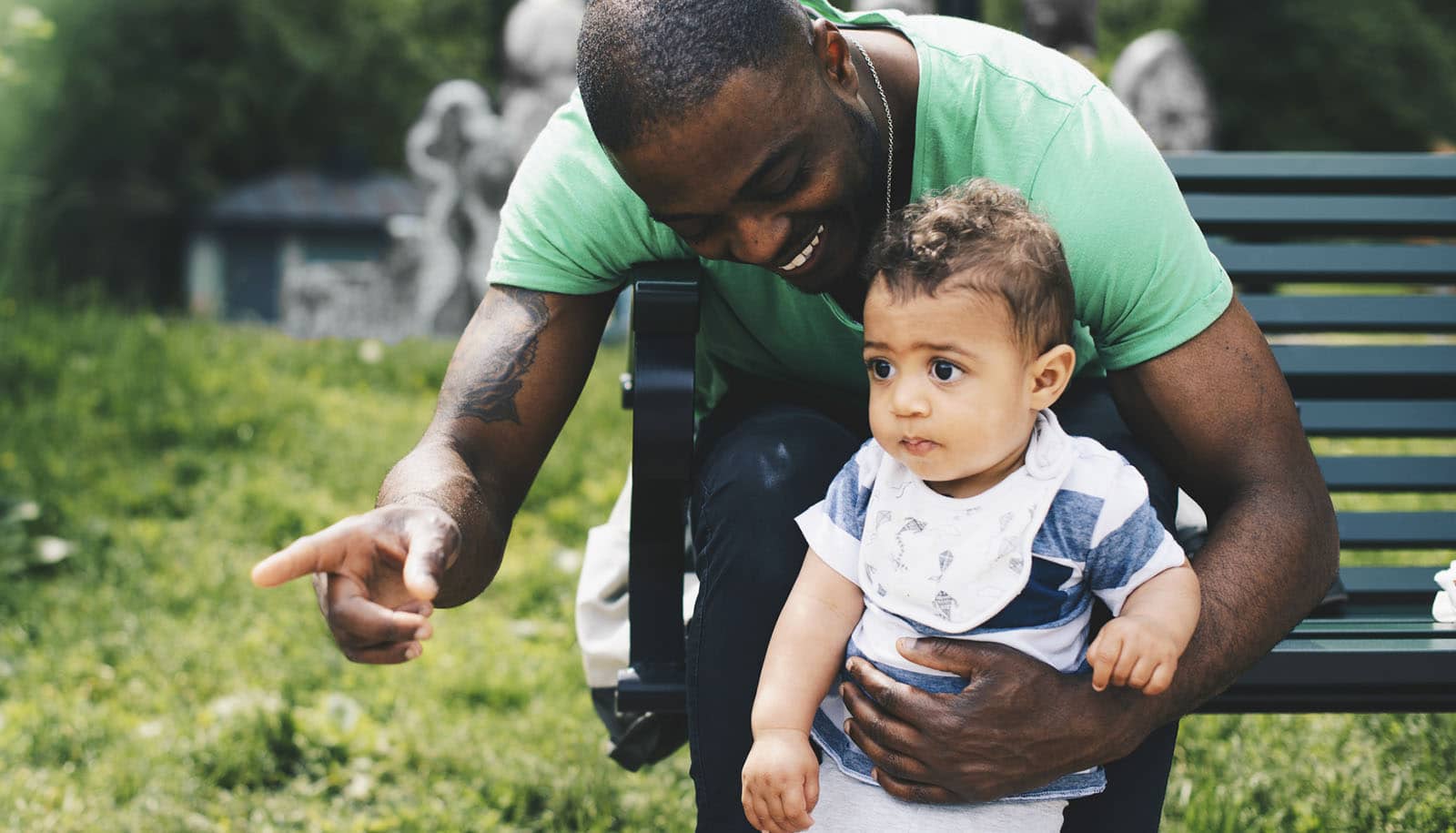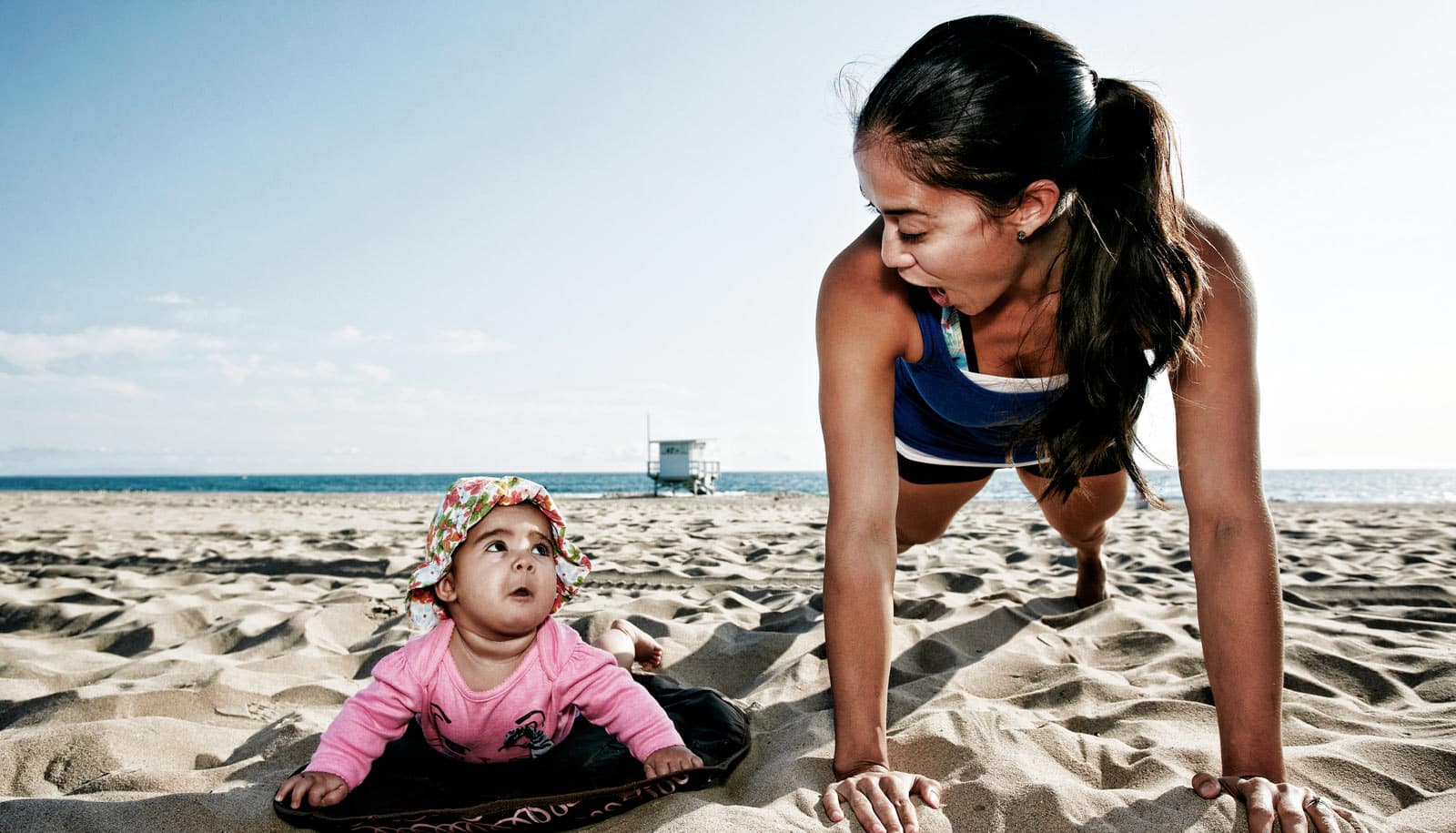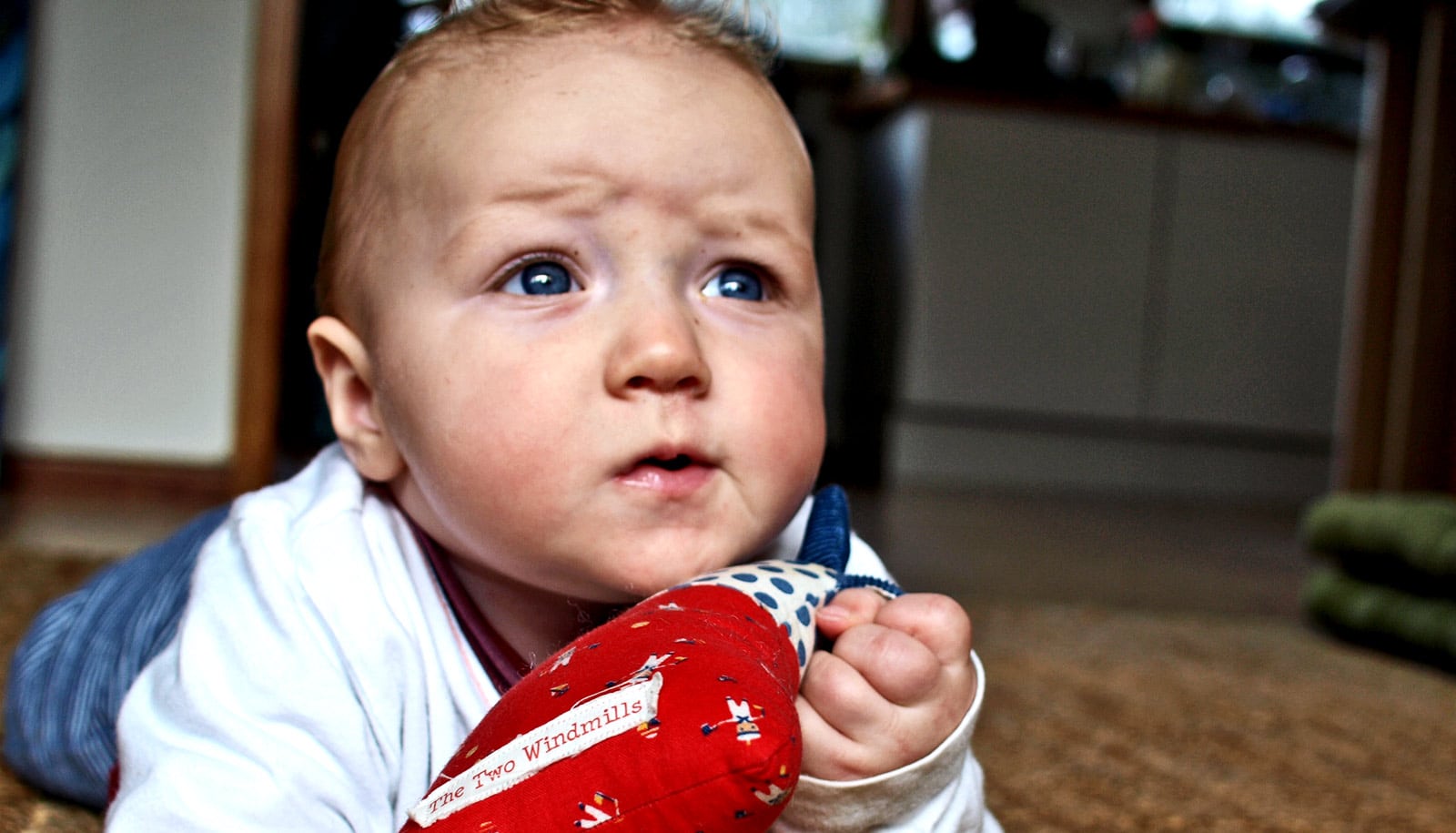Parents and caregivers are enough to mitigate the pandemic’s negative effects on the social development of babies, research finds.
To study whether infants born during the pandemic exhibit different social behavior than same-aged infants before the pandemic, researchers focused on the children’s ability to follow another person’s gaze. The findings appear in the journal Infancy.
“This ability is fundamental for engaging in social interactions, building relationships, and developing language skills,” says Stephanie Wermelinger, who researches developmental psychology in infants and children in the psychology department at the University of Zurich. If this ability is impaired, it can hamper a person’s ability to interact with society.
The study included 80 infants between the age of 12 and 15 months. They saw different videos in which a person was gazing at one of two objects. By tracking the infants’ eye movements, the researchers recorded how often and how quickly the infants followed the person’s gaze. They then compared their data with eye movement data from 133 children using the same method before the pandemic.
The study reveals no significant behavioral differences between the children born during and before the pandemic. Children born during the pandemic followed the person’s gaze just as often and quickly as the children in the pre-pandemic group.
Although the pandemic meant that the children saw fewer people overall and interacted with more people who were wearing masks, they don’t seem to be developing any differently to children who didn’t experience any pandemic-related changes.
“We believe the unchanged social interactions with parents and caregivers at home are enough to mitigate any influence the COVID-19 pandemic might have had on infants,” says Wermelinger. These contacts could be sufficient to provide infants with the social input they need to develop social and emotional skills such as gaze following.
Source: University of Zurich



